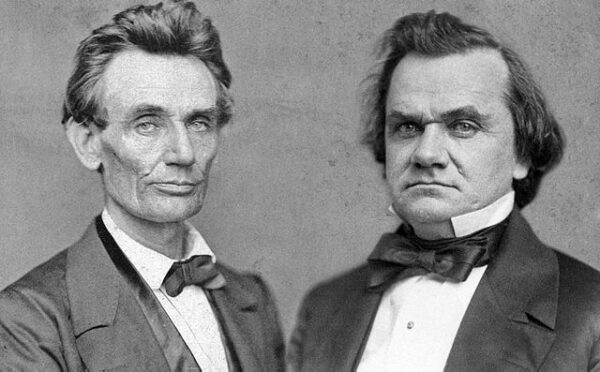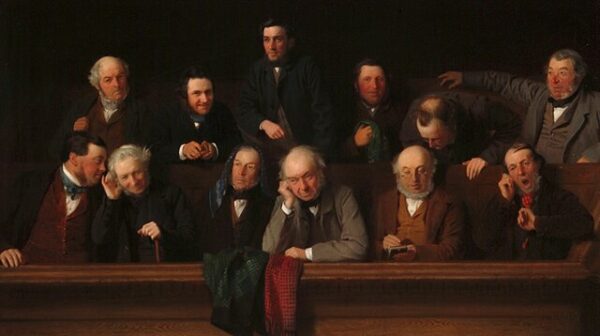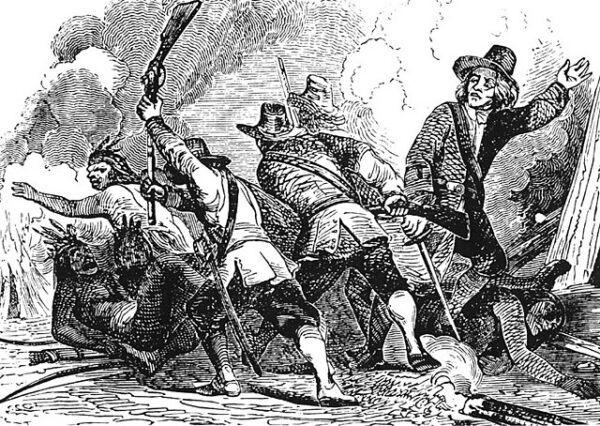On August 21, 1858, in Ottawa, Illinois, two leading figures in American democracy launched a series of debates over a Senate seat, debating what it means to be free, democracy, and the purpose of the United States. The National Parks Service states that the first debate happened on a dry and dusty day and that “between 10,000 and 12,000 people were in attendance…there were no seats or bleachers.”
The Lincoln-Douglas Debates, a series of seven iconic debates that took place in 1858 between Abraham Lincoln and Stephen A. Douglas, represent a pivotal moment in American political history and are often considered a defining moment in the lead-up to the Civil War. These debates centered on slavery and its extension into the newly acquired territories, serving as a platform for both candidates to articulate their positions on this divisive topic. Held across Illinois, the debates drew significant attention and showcased the contrasting viewpoints of Lincoln, a Republican, and Douglas, a Democrat, on the future of the United States.
Each debate followed a format where one candidate spoke for an extended period, followed by a rebuttal from the other candidate and concluding remarks. The debates captured the essence of the American democratic tradition, providing citizens with an opportunity to witness their potential leaders engaging in intellectual and ideological discourse. These debates illuminated the stark differences in approach and philosophy between Lincoln and Douglas. While Douglas championed the idea of “popular sovereignty,” allowing territories to decide the issue of slavery through local referendums, Lincoln argued that the spread of slavery was inherently unjust and morally indefensible.
The Lincoln-Douglas Debates transcended their local context and had far-reaching implications for the nation’s future. Lincoln, despite losing the Senate race to Douglas, gained national prominence due to his eloquence and principled stance against the expansion of slavery. His performance in these debates propelled him onto the national stage and set the stage for his eventual election as the 16th President of the United States in 1860. Moreover, the debates underscored the irreconcilable divisions between the North and the South, which eventually culminated in the eruption of the Civil War in 1861.
Beyond their immediate political impact, the Lincoln-Douglas Debates are remembered for their intellectual rigor and the depth of discourse displayed by two political leaders who disagreed with each other but who both loved their nation profoundly and cared about its future.
The debates highlighted the importance of public speaking and rhetoric in shaping political narratives and influencing public opinion. They demonstrated that democracy thrives when informed and passionate individuals engage in substantive discussions about crucial national issues. The legacy of these debates endures, serving as an enduring testament to the power of ideas and words in shaping the course of history and defining the essence of American democracy.






